US President Confirms Airstrikes On IRGC Positions In Iraq, Syria
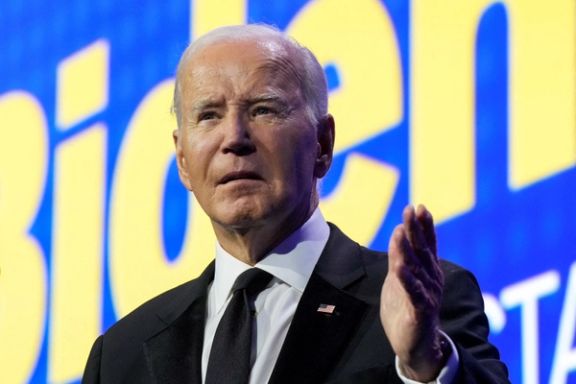
In a letter addressed to the House of Representatives and the Senate, President Joe Biden detailed recent US military actions against the Revolutionary Guard in Iraq and Syria.

In a letter addressed to the House of Representatives and the Senate, President Joe Biden detailed recent US military actions against the Revolutionary Guard in Iraq and Syria.
The president highlighted the 66 attacks carried out by militia groups affiliated with the IRGC against US personnel and facilities in the region, causing injuries and placing lives at risk. The uptick followed the outbreak of the war in Gaza, in which the US quickly stated its backing of Israel's right to defend itself following the Iran-backed invasion of October 7, the single most deadly day for Jews since the Holocaust.
Biden stated that on October 27, November 10, and November 14, Washington conducted targeted strikes against facilities in Syria used by the IRGC and its affiliated groups.
"The strikes were taken to deter future attacks and were conducted in a manner designed to limit the risk of escalation and avoid civilian casualties. I directed the strikes to protect and defend our personnel conducting military operations pursuant to the 2001 Authorization for Use of Military Force," explained President Biden.
Iran has denied direct involvement in the Gaza conflict, but its proxy forces in Lebanon, Syria, Iraq and Yemen, have initiated attacks against both Israel and US forces.
The attacks by Iran-affiliated groups have resulted in at least 62 US personnel sustaining minor injuries or traumatic brain injuries.

The United States has intercepted and shot down several one-way attack drones launched by Iran-backed Yemeni Houthis on Thursday morning.
The US Central Command (CENTCOM) announced in a post on X that the attack was repelled by the USS Thomas Hudner, an Arleigh Burke-class guided missile destroyer.
“The drones were shot down while the US warship was on patrol in the Red Sea,” added the report.
According to CENTCOM, “the ship and crew sustained no damage or injury.”
The attack came hours after the Israeli Defense Forces (IDF) shot down a cruise missile over the Red Sea before it could infiltrate into the Israeli territory.
The missile, which targeted Israel’s southernmost city of Eilat, was believed to have been launched by Yemen’s Houthis, The Times of Israel reported.
On November 15, the Hudner engaged another drone that originated from Yemen. The US Defense Department said in a statement regarding the attack that the drone “was heading in the direction of the ship.”
Since Hamas’s deadly onslaught on Israel on October 7, Yemen’s Houthis, backed by the Iranian regime, have launched several drone and missile attacks against US and Israeli targets in the region.
The Israeli military said on Sunday that Yemen's Houthis had seized a cargo ship in the southern Red Sea as it was sailing from Turkey to India.
The Israeli Prime Minister's Office issued a statement after the hijacking of the ship, calling it “an act of Iranian terrorism.”
Though the Islamic Republic has avoided any direct involvement in the Israel-Hamas conflict, the regime has used its proxy groups in the region such as Houthis and Hezbollah to attack Israel and American targets.
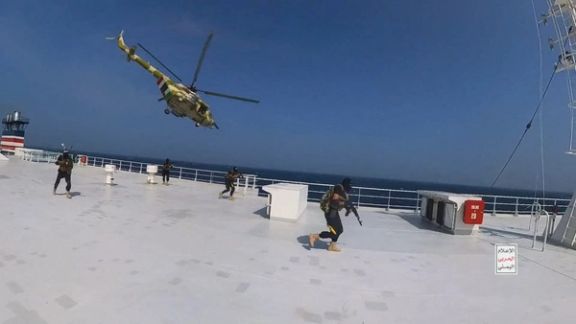
A Revolutionary Guards ship has allegedly helped the Iran-backed Houthis hijack a cargo vessel in the Red Sea, an operation reportedly led by an IRGC Quds Force commander.
The Galaxy Leader car carrier, owned by Israeli billionaire Abraham "Rami" Ungar but operated by the Japanese company NYK Line, was seized by Houthi forces Monday. Japan is said to be in direct talks with the group the US is now considering redesignating.
The hijacking, captured in footage released by the Houthis, depicted armed men storming the vessel from a helicopter.
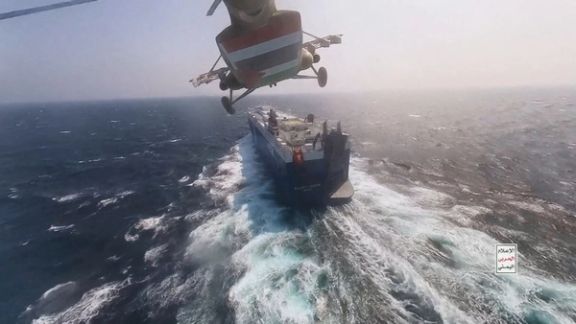
An Iranian spy ship, the Behshad, associated with the Islamic Revolutionary Guard Corps (IRGC), is believed to have played a role in disclosing the Galaxy Leader's location to the Houthis. The Galaxy Leader had turned off its AIS transponder, raising questions about how the vessel's location was made known to the rebels. The Behshad, converted from a cargo vessel, has been present in the Red Sea since 2021, further deepening its connection to the IRGC.
Ronen Solomon, an independent intelligence analyst for IntelliTimes, says evidence points to IRGC Quds Force commander Brig Gen Abdolreza Shahlaei as the potential orchestrator of the hijacking.
The US government's Rewards for Justice program has a bounty of up to $15 million on Shahlaei's head, citing his involvement in attacks against Americans and US allies.
There are 25 hostages of various nationalities on the vessel being held in Yemen. Iran has a history of ship attacks since 2018, coinciding with the US's "maximum pressure" sanctions campaign.
It is believed the Houthis thought the vessel was Israeli, hoping to capture Israeli hostages, amidst the Gaza war. Iran-backed Hamas invaded Israel on October 7, resulting in relentless attacks from Israel. Regime leaders have condemned the Israeli assault and have activated Iran's proxies in the region, including the Houthis, which had threatened to hijack Israeli vessels in the region. The Houthis have also sent missiles towards Israel, along with proxies in Syria, Lebanon and Iraq.
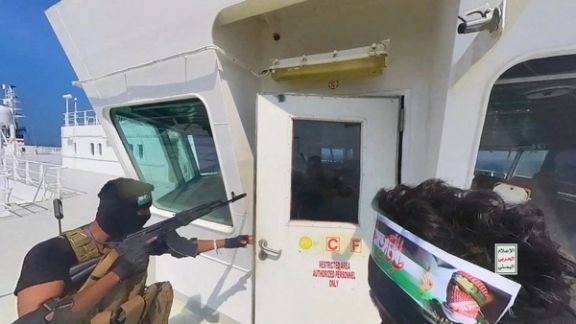
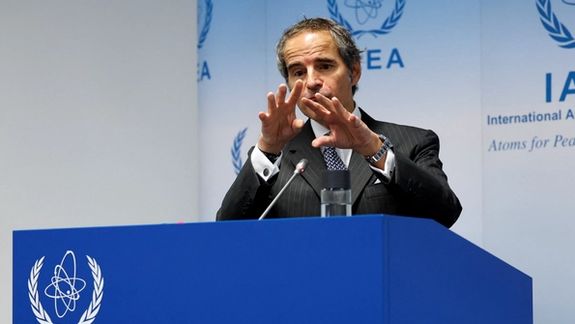
The head of the UN nuclear watchdog warned of a lack of progress on curtailing Iran's ongoing stockpiling of enriched uranium, claiming "no progress" has been made since March.
Director General of the International Atomic Energy Agency (IAEA) Rafael Grossi made the remarks on the opening day of a quarterly meeting of the agency's 35-nation Board of Governors in the Austrian capital Vienna on Wednesday.
Presenting his latest report on verification and monitoring in the Islamic Republic of Iran in light of United Nations Security Council Resolution 2231 (2015), Grossi said. “You will note that Iran’s stockpiles of uranium enriched up to 5%, enriched up to 20% and enriched up to 60% – high enriched uranium – have all increased since we met in September with the increase of the 60% continuing at the same rate as I reported at the time of the last Board."
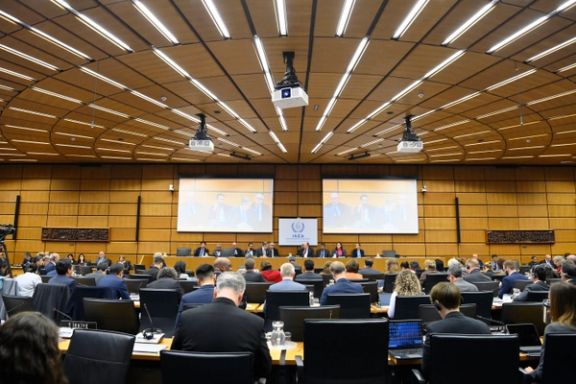
He also urged cooperation for implementing commitments made by Iran in another report on the NPT Safeguards Agreement with the Islamic Republic of Iran. “I regret that no further progress has been made in implementing the Joint Statement signed in Tehran on 4 March... I am seriously concerned that the implementation of the Joint Statement of 4 March 2023 has come to a standstill. A way forward must include an honest and cooperative implementation of the commitments we agreed.”
A few days after Iran secured a prisoner swap with the US that included unfreezing of about $6 billion of its oil revenues blocked in South Korea, Tehran withdrew the designation of several inspectors assigned to conduct verification activities in Iran under the Non-Proliferation Treaty Safeguards Agreement. he said the move “contradicts the spirit of cooperation agreed in the Joint Statement of March 2023.”
Grossi said, "It takes a long time to train inspectors of this kind... We will go ahead (with inspections) but this is a very negative development and a serious blow. We hope that this decision will be reversed."
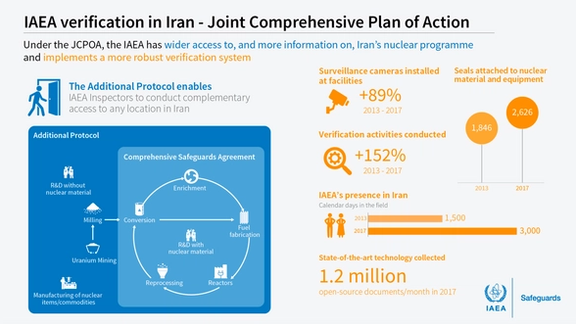
He emphasized the need for Iran to provide technically credible explanations for the presence of uranium particles of anthropogenic origin at Varamin and Turquzabad and to inform the Agency of the current location(s) of the nuclear material and/or of contaminated equipment.
“These outstanding safeguards issues stem from Iran’s obligations under its Comprehensive Safeguards Agreement and need to be resolved for the Agency to be in a position to provide assurance that Iran’s nuclear program is exclusively peaceful,” he stated.
Iran has enough uranium enriched to up to 60% for three atom bombs and is still stonewalling the agency on key issues, IAEA reports showed earlier in the month. Iran's stock of uranium enriched to up to 60% grew by 6.7 kg (14.8 pounds) to 128.3 kg (282.9 pounds) since the last report on September 4, one of the two reports to member states seen by Reuters said. That is more than three times the roughly 42 kg (92.6 pounds) that by the IAEA's definition is theoretically enough, if enriched further, for a nuclear bomb. Weapons-grade is around 90% purity.
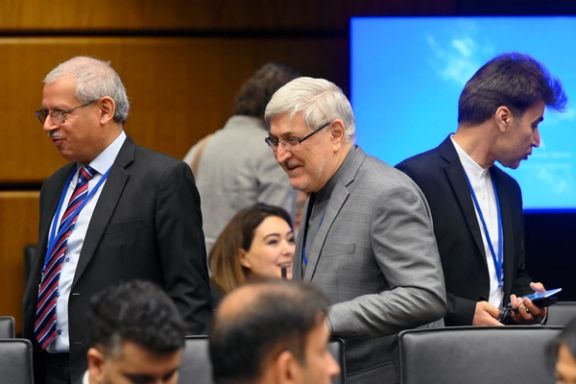
Amid simmering tensions in the region -- started by Iran-backed Hamas's bloody invasion of Israel on October 7, Grossi also stressed the need to make the Middle East a nuclear-free zone. “I think there have been repeated calls for all countries in the Middle East – and this includes Israel – to join the NPT and to open all their nuclear facilities to comprehensive safeguards inspections and this is very clear... Every country in the Middle East should be party to the NPT which is the most successful treaty in arms control and non-proliferation in history.”
Grossi underlined “the fact that a nuclear war cannot be won and therefore should never be fought,” falling short of addressing the political aspect of a nuclear weapon as a sword of Damocles hanging over global security.
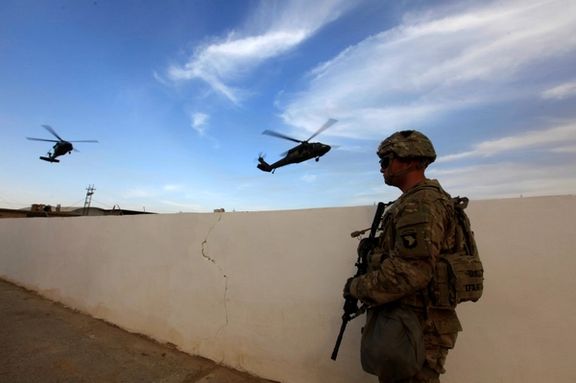
Iraq says overnight US airstrikes south of Baghdad that killed eight members of Iran-aligned Iraqi armed group Kataib Hezbollah was a "dangerous escalation."
Condemning the strikes, Baghdad said Wednesday that the operation was not coordinated with authorities. The Iraqi government labeled the US attacks "a clear violation of sovereignty and an attempt to disrupt the stable internal security situation," while also noting attacks by armed groups went against Iraq's national interest.
The US has carried out two series of strikes in Iraq since Tuesday, a response to more than 60 attacks by Iran-linked militias in the region. The US had previously undertaken three separate sets of strikes in Syria in response to the attacks, which began on October 17 by Iraqi militia groups in reaction to Israel’s bombardment of Gaza following October 7 bloody invasion of Israel by Iran-backed Palestinian militant group Hamas.
The recent strikes destroyed a Kataib Hezbollah operations center and a command and control node. This marks a departure from the US's previous reluctance to retaliate in Iraq due to the delicate political situation in Baghdad, where they sought closer cooperation.
Kataib Hezbollah, based in Jurf al-Sakhar south of Baghdad, confirmed the death of eight of its members in the airstrikes and issued a threatening statement, warning of more attacks on a broader range of targets if US strikes persist.
The airstrikes have resurfaced the challenges faced by Iraqi Prime Minister Mohammed Shia Al-Sudani in controlling Iran-backed factions. These factions played a crucial role in securing his support to win power a year ago and now constitute a powerful bloc in his governing coalition. The diverse views among these factions regarding actions against US forces further complicate the situation.
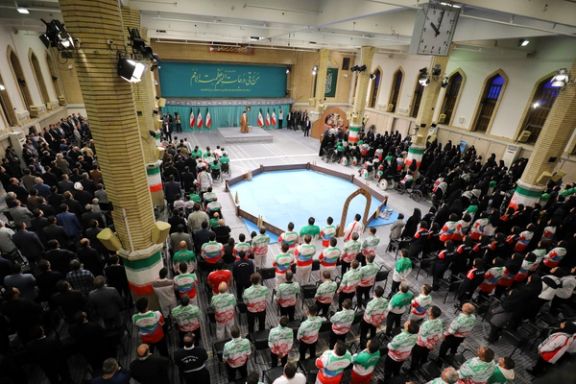
In a Wednesday address to Iranian sports champions and medal winners of the Asian Games, Iran's Supreme Leader Ali Khamenei again issued a warning to Israel.
"The Israeli heavy defeat will not be compensated by these bombings; such bombardment campaigns will only shorten the life of the occupying regime; [and] this tyranny and cruelty will not go unanswered," he said, referring to the relentless retaliatory attacks launched by Israel in the wake of the Hamas invasion of Israel on October 7. It was the single most deadly day for Jews since the Holocaust, 1,200 mostly civilians brutally murdered, leading to Israel vowing to destroy the proscribed terror group.
In spite of denials of involvement in the Hamas invasion, Khamenei celebrated the day now branded Black Sabbath in Israel with women, elderly and children slaughtered, and 240 taken hostage.
"The Zionist regime was knocked out in Al-Aqsa Storm," he boasted, Iran having a long history of backing its biggest Palestinian proxy, Hamas.
He also commended Iranian athletes who expressed solidarity with Palestine by withdrawing from competitions against Israeli athletes in Hangzhou’s international sports tournament. Khamenei highlighted the significance of their actions in the wake of Israel's actions in Gaza.
While there is no legislation explicitly banning Iranian athletes from competing against Israelis, pressure from federation officials often leads to intentional losses, match forfeitures, or claims of injury.
The Supreme Leader has consistently praised Iranian athletes who refuse to compete against Israelis. In September 2021, Khamenei encouraged them to persist in their boycotts, even in the face of potential punishment by international sports bodies.
Approximately 30 Iranian athletes have defected from national teams in a range of sports in recent years, seeking asylum in other countries.